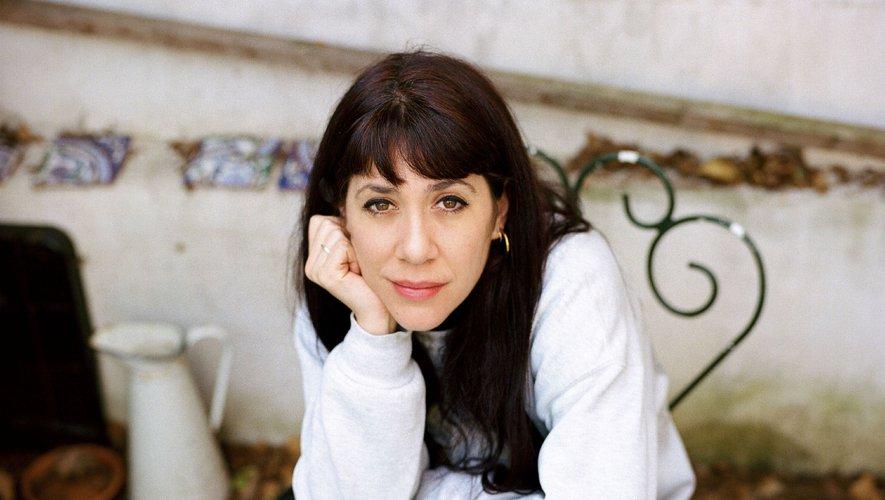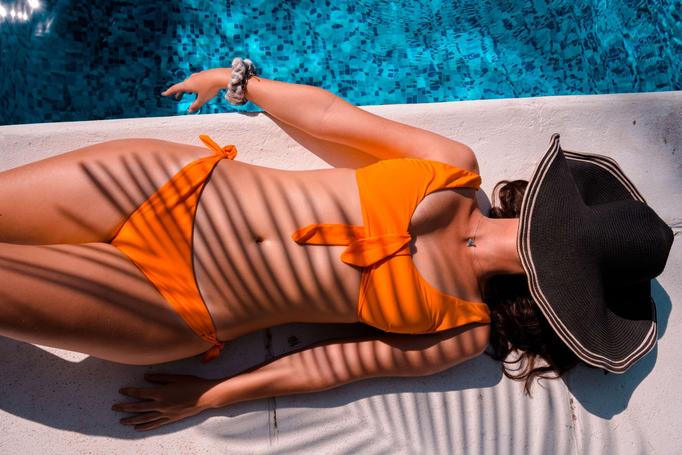"The ugly is all that we do not know how to name" (Alice Pfeiffer)
(ETX Studio) - Fashion journalist, Alice Pfeiffer could boast of having the most desirable parts of the biggest creators in her dressing room.It is however of his affection (assumed) for clothing, accessories, and cheesy objects, kitsch, bling-bling, even completely has been, which is discussed in the book to be published "The taste of the ugly".A passion that undoubtedly finds echo in more than one dressing room, right?Meeting with the author who proves to us that the "ugly" is not just a matter of taste.
What is the "ugly"? We often oppose the ugly and the beautiful, but it is much more complex than that.The ugly is what is a bit ridiculed, a little mocked.It is something less serious, often adorned with a certain disdain.I found it interesting to see everything we could do and have ugly, who amused us, or in front of which the human feels a little powerful.Finally, the ugly is a lot of facets that we do not really manage to define.It can be kitsch, cheesy, vulgar, old -fashioned, or missed, and it can also be an area of reappropriation for many contemporary artists.But what really interests me is that the term 'ugly' is ultimately all that we do not know how to name, all that we cannot circumscribe.There is an air of mystery that floats around the ugly.
But, isn't that very subjective?Extremely.It is specific to each era, every social class, and even at each generation.It is for this reason that I say in the book: 'Tell me who you find ugly, I will tell you who you are'.Around twenty, I remember wearing clothes that my mother found awful when for me it was a form of modernity.This is also why the opposite of the ugly is not necessarily the beautiful.It can be the futuristic, the unexpected, or the 'provocative'.
What was the trigger for this taste for the ugly? I grew up with parents who were very intellectual, very baby cool - everything was recycled for example - and I had a taste for everything that was prohibited.At the beginning, I remember, it was just the "m" of the super M flashing and that I adored.In summary, deprived of capitalism, I only dreamed of that!I loved everything that shone, what was blinking, everything that was super gendered, everything that was super feminine.I finally loved everything I didn't have access.

You talk about the ugly as the "reflection of your privileges", a "claim", or more generally as a way of surprising.Is wearing ugly to want to stand out, to refuse certain dictates? To love the ugly is indeed something that we claim.We don't ask ourselves so many questions about what the ugly is.Love the ugly does not say thinking about what the ugly is.We say that this ugly is for granted, that we love it, and that it is therefore part of our own social construction.The starting point of the book, I love the ugly.And I just wondered if to love the ugly was the fact of turning the stigma of a beautiful, or of a good taste, which can be completely tyrannical, or, on the contrary, if I was in the process ofreiterate a process of distinction.Because by saying that I like the ugly, I also say that I am not afraid to be associated with the people we associate with this ugly.I'm not afraid of being treated with cheesy.
You work in the demanding fashion environment.What are the reactions you can face on a daily basis? I think they don't know if I have a very bad taste, or if I am very daring.This is what I am going to tell me in general.Is it provocation?Am I next to the plate?Or, on the contrary, did I understand everything?Anyway, I am in the same places as them.But, in general, it makes them laugh more than anything else.
For several seasons we have seen a real craze for the ugly or the cheesy: dad shoes, bob, cycling shorts, sleeveless down jacket.How do you explain it? Yes, there you describe a certain normcore that I also apply.I put fleece and large white sneakers - besides it is also the return of the fangs.This can be explained by the fact that a certain chic has become extremely mainstream.It is the basis of "the distinction" of Pierre Bourdieu, who explains that the day the masses will have access to the codes of the bourgeoisie, the bourgeoisie will reject these codes and will even exactly the opposite.There is a real mainstreamization 'of things which were originally only reserved for an elite, and I think that this elite chose to do the opposite, and in a way to make fun of the classes that had itimitated.
You decline the ugly in cheesy, vulgar, even disgusting.But what is ugly or vulgar today will it be in 10 years.Isn't that just a question of context, interpretation, even generation? Yes, completely.And it goes even very quickly.I can see that the new fashionables, which have their twenties, carry things that I find objectively awful, but it is already another stratum of reading for them.What we find beautiful today will be actually moche tomorrow.
We can associate Moche with Ringard or Has-Been, but by definition is fashionable not in essence? Fashion begins by not being cheesy but cheesy the front season in order to become fashionable.It is a game, it is a tension that actually exists between the different fashion cycles.And one must look at the other.
What ugliest pieces that you would not separate for anything in the world? All animal prints, that's for sure, but also the size XXL Creoles with the inside "Sexy Baby" inside.This is exactly the kind of thing I can wear.
*"Le taste of the ugly", Alice Pfeiffer, Editions Flammarion - released on May 12, 2021.








